
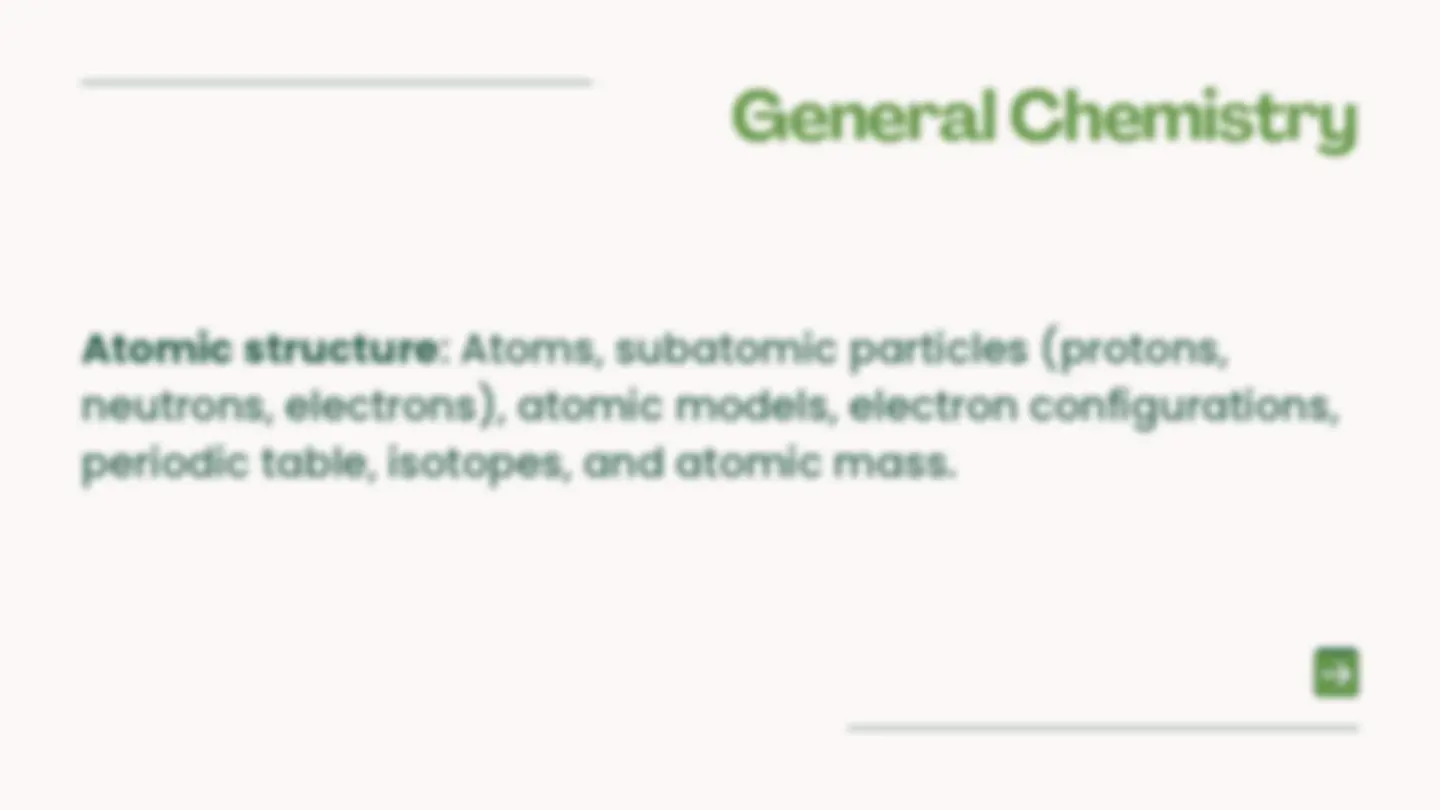
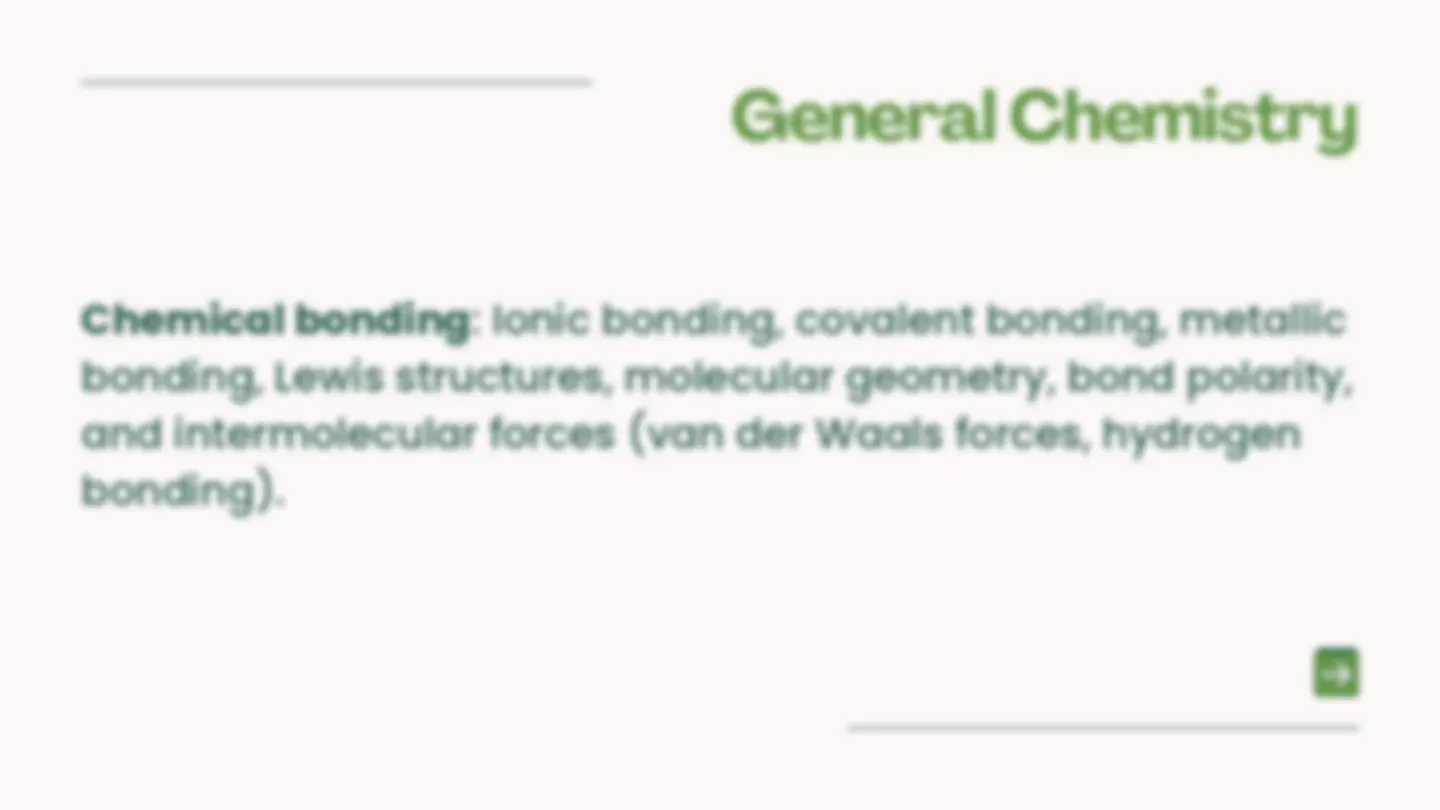
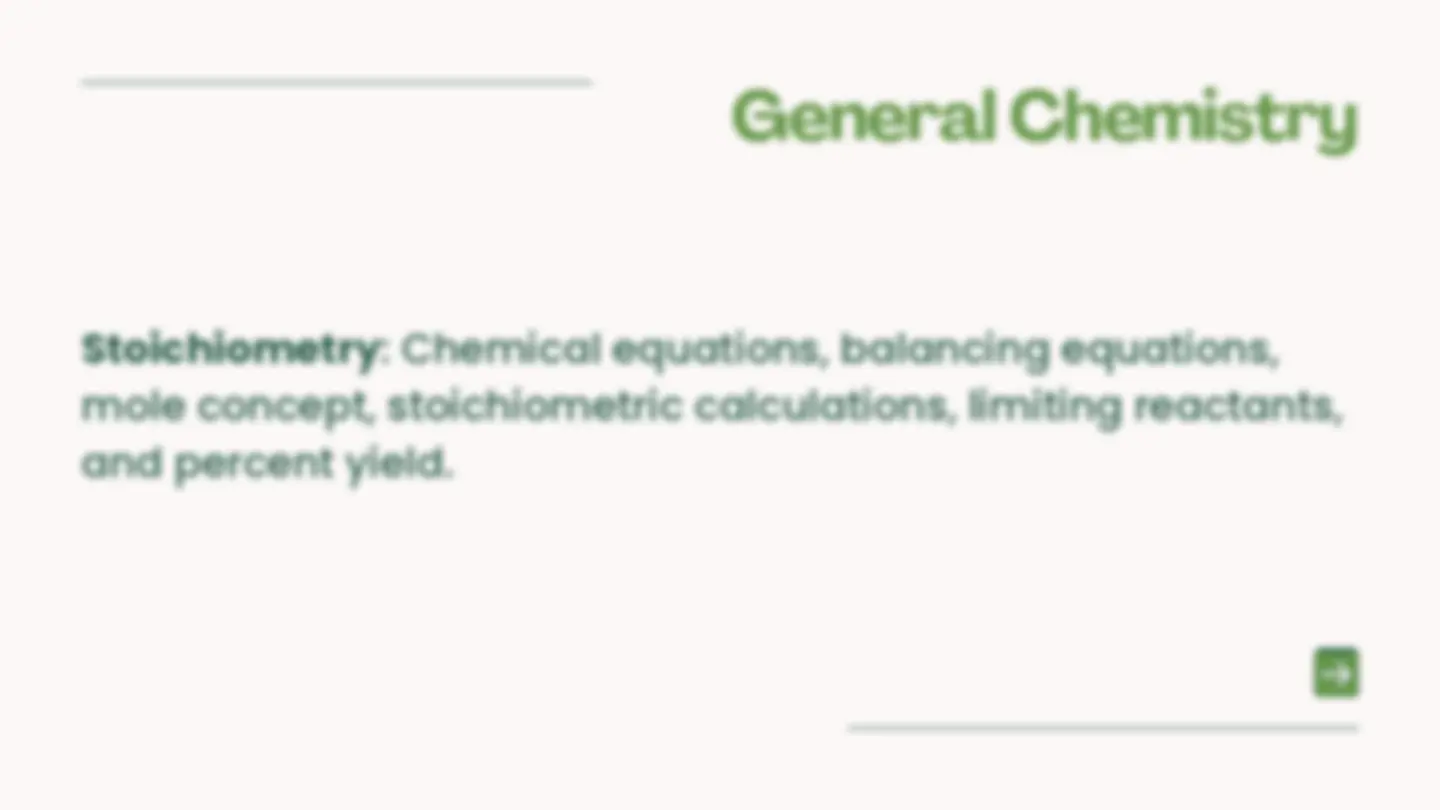
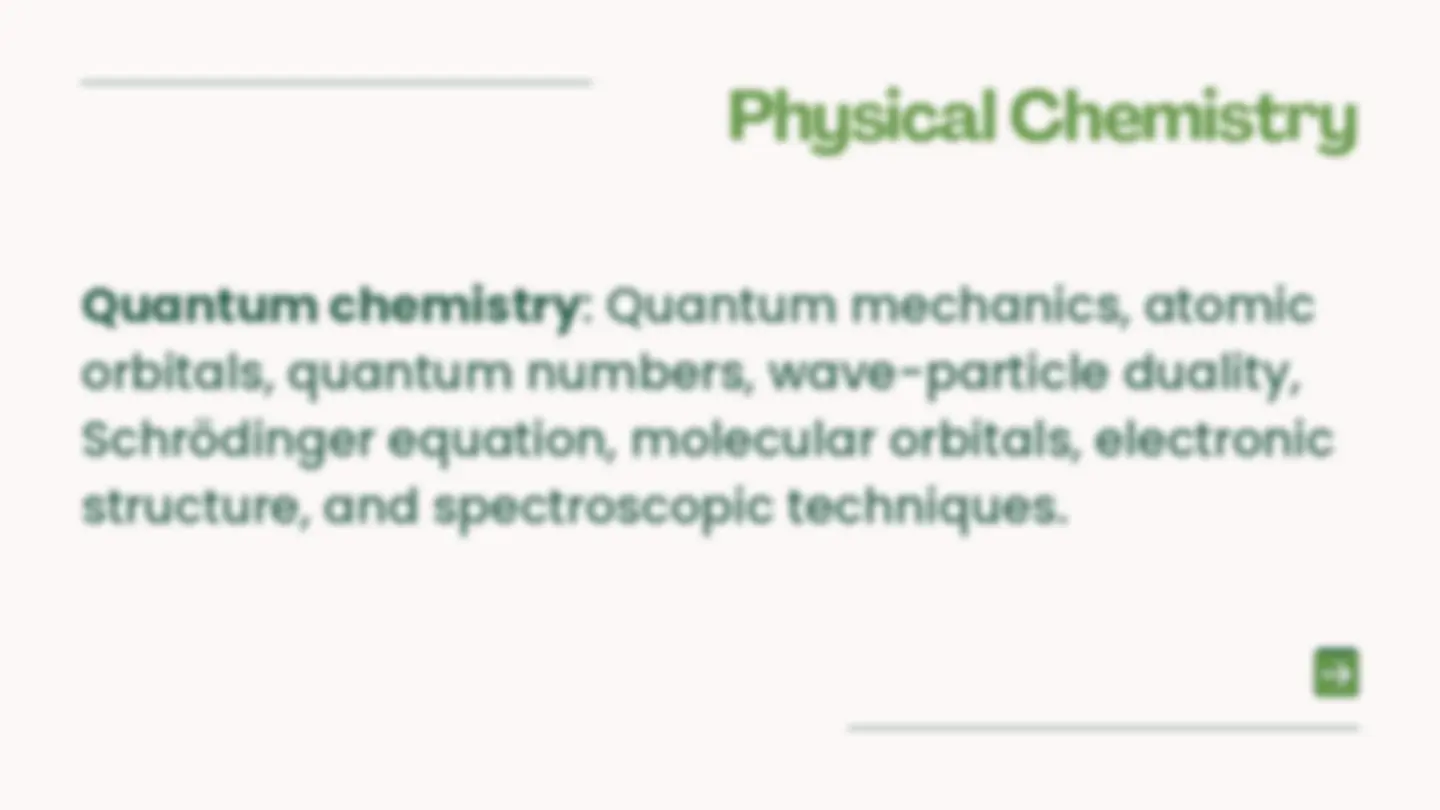
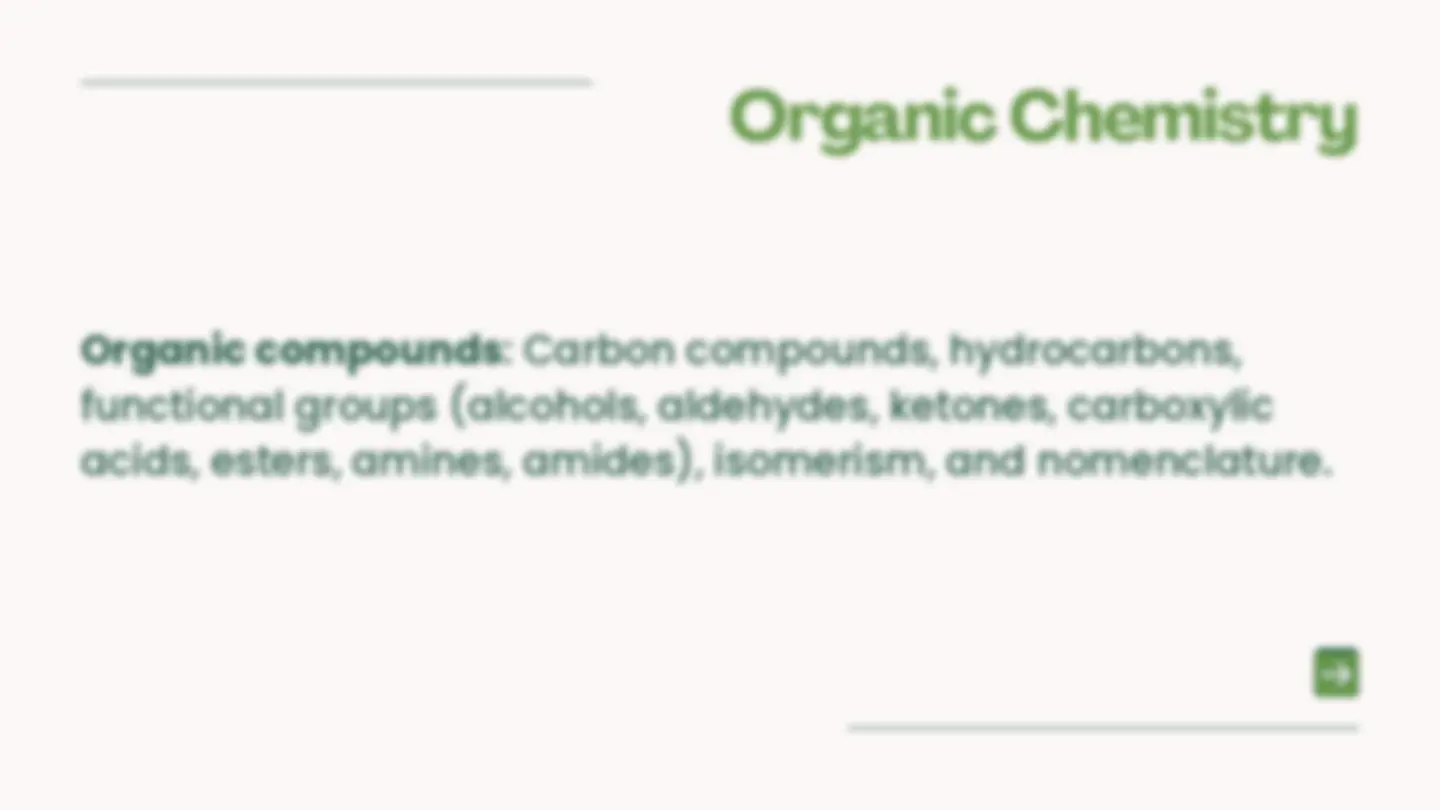
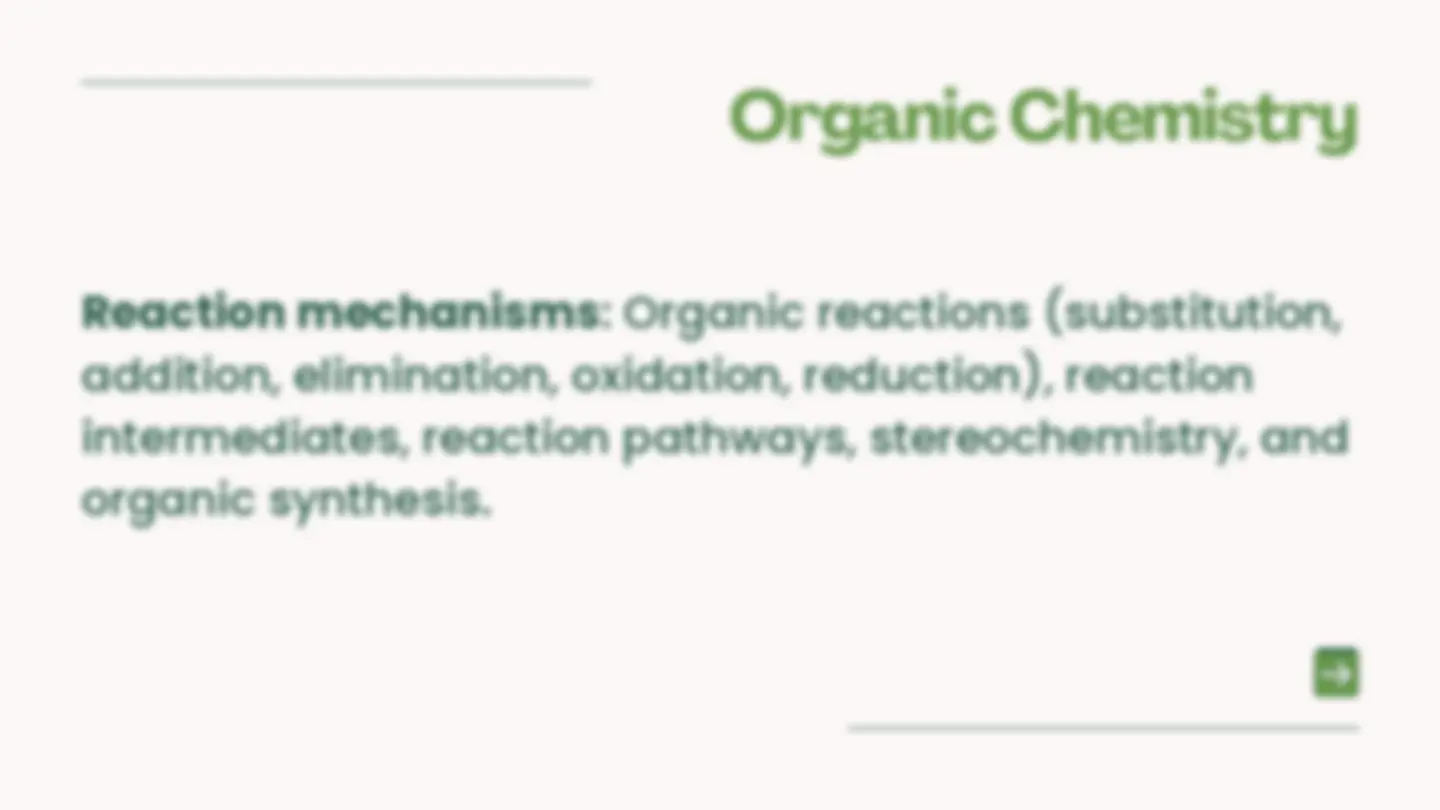
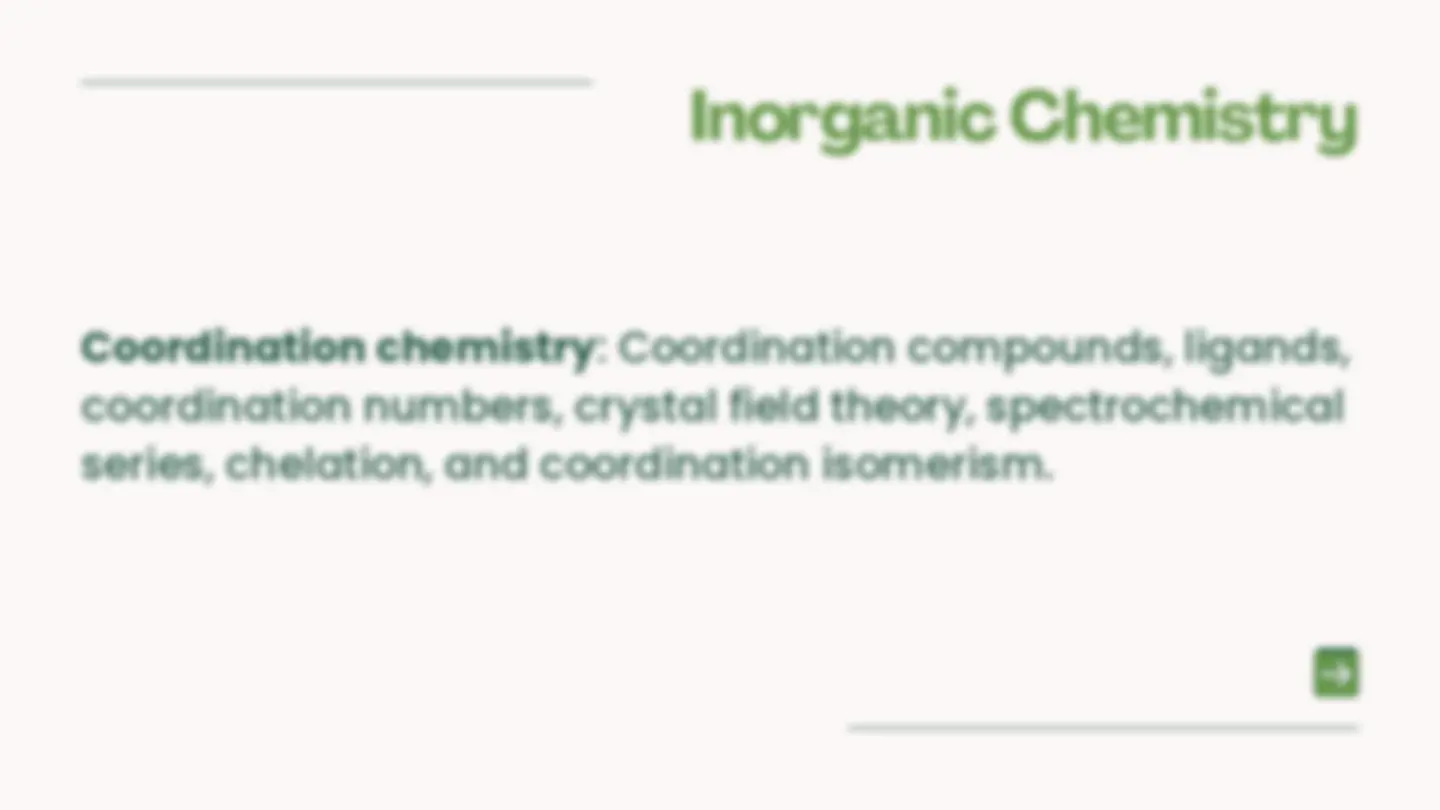
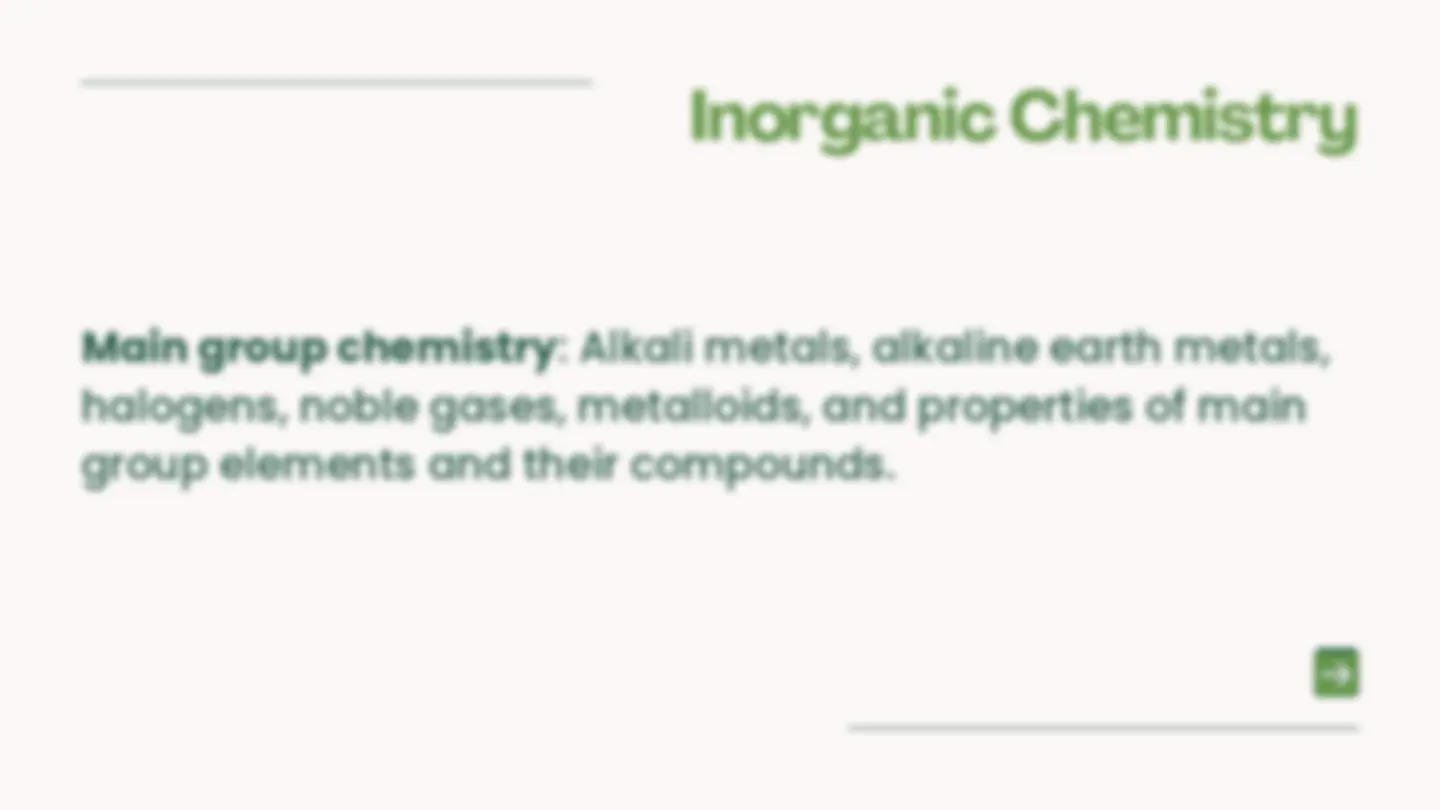
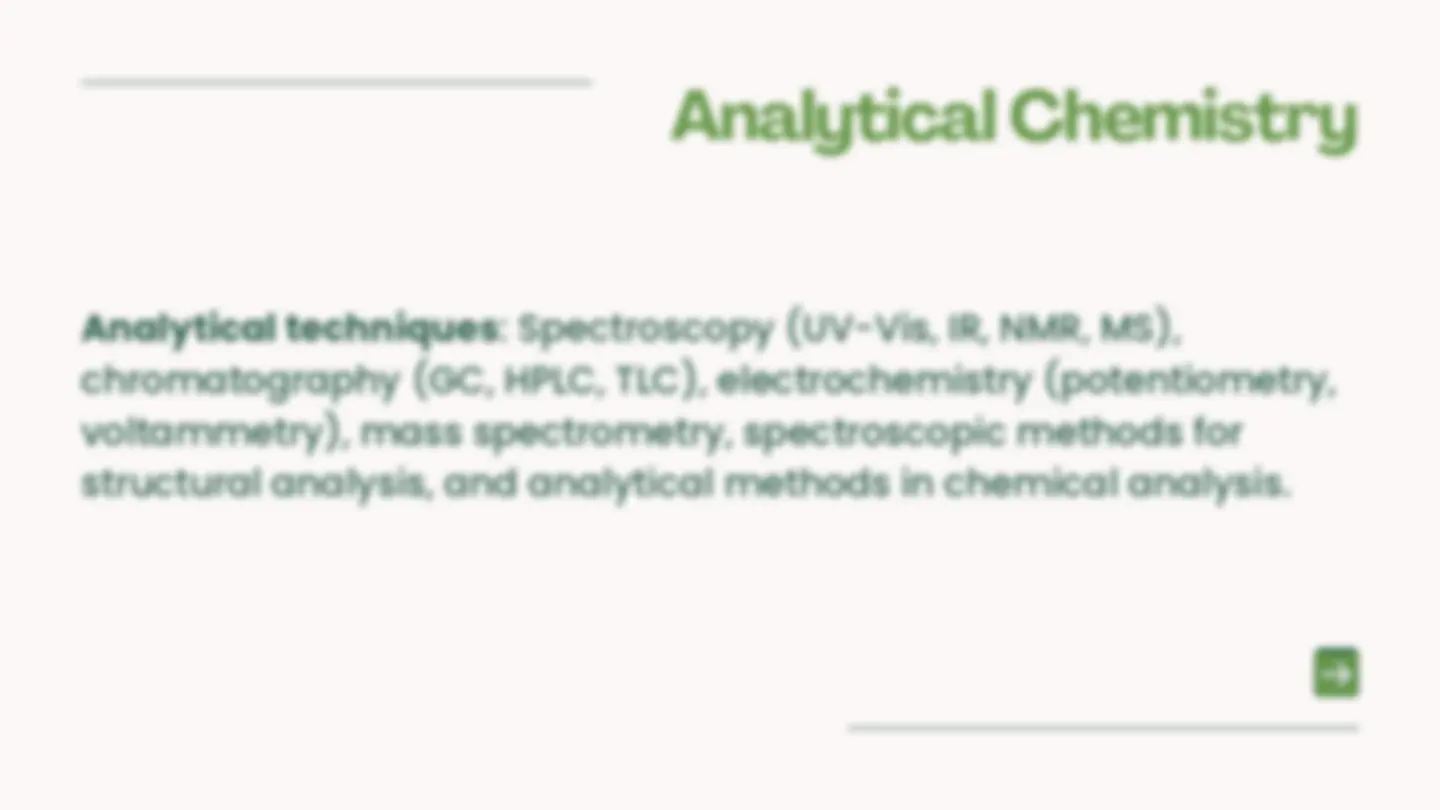
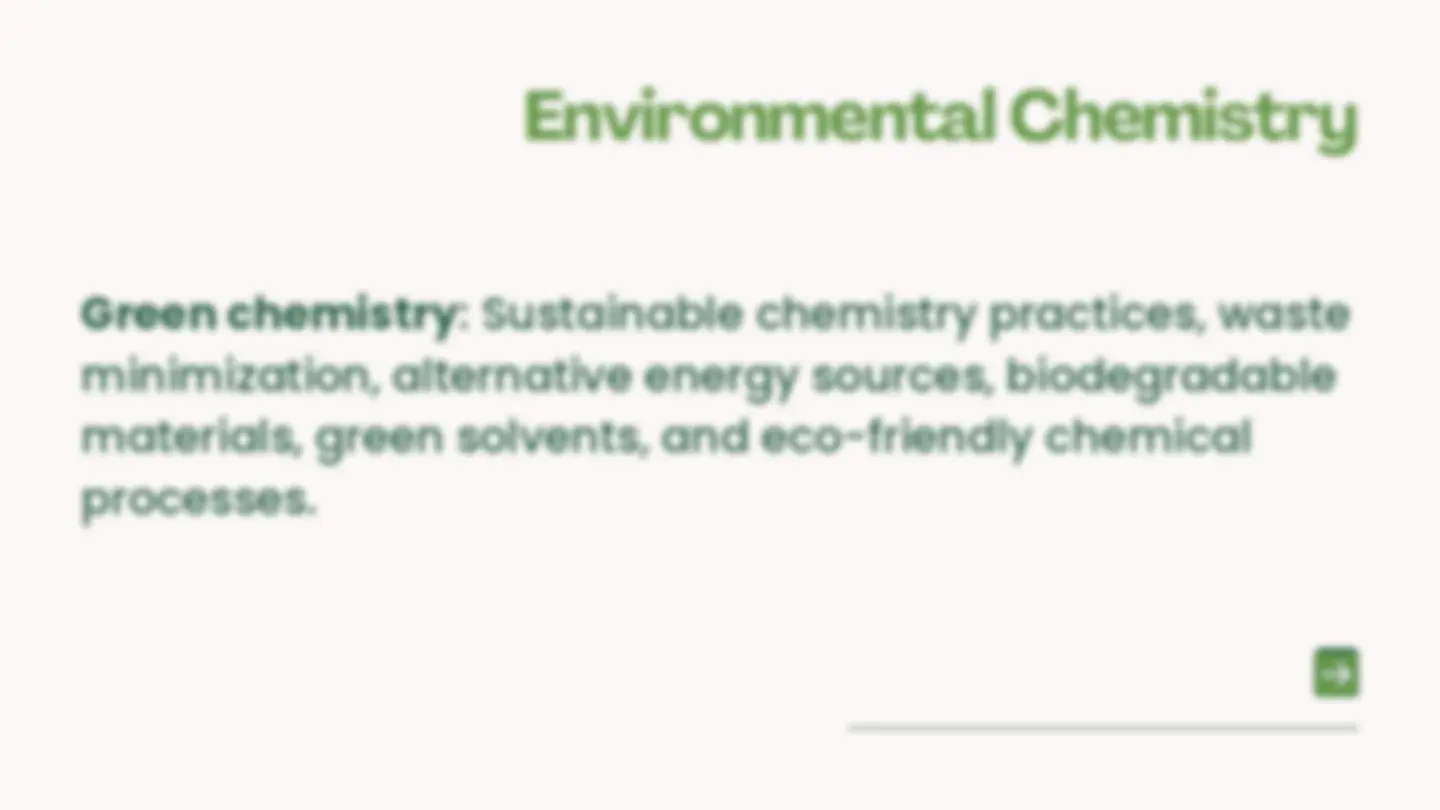
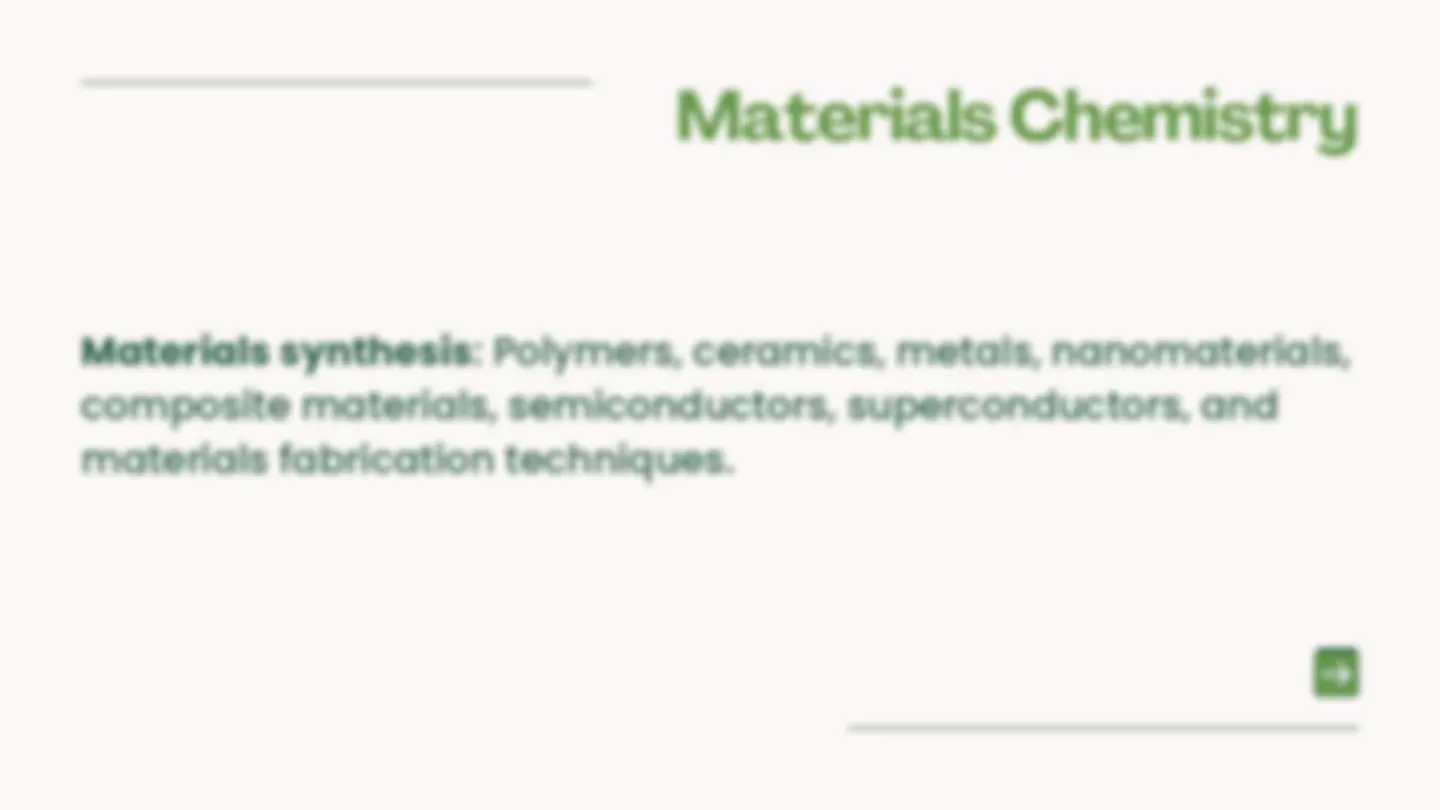
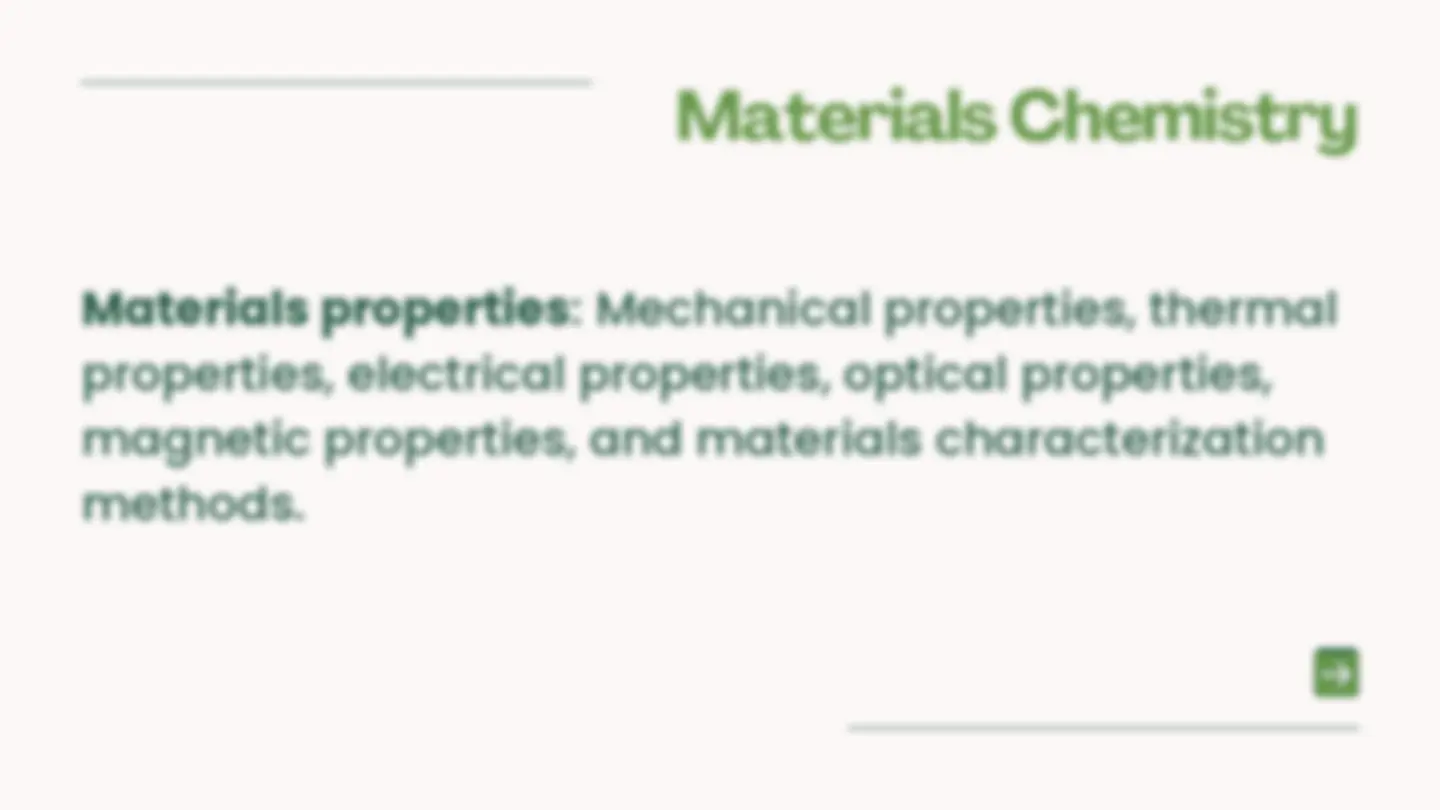
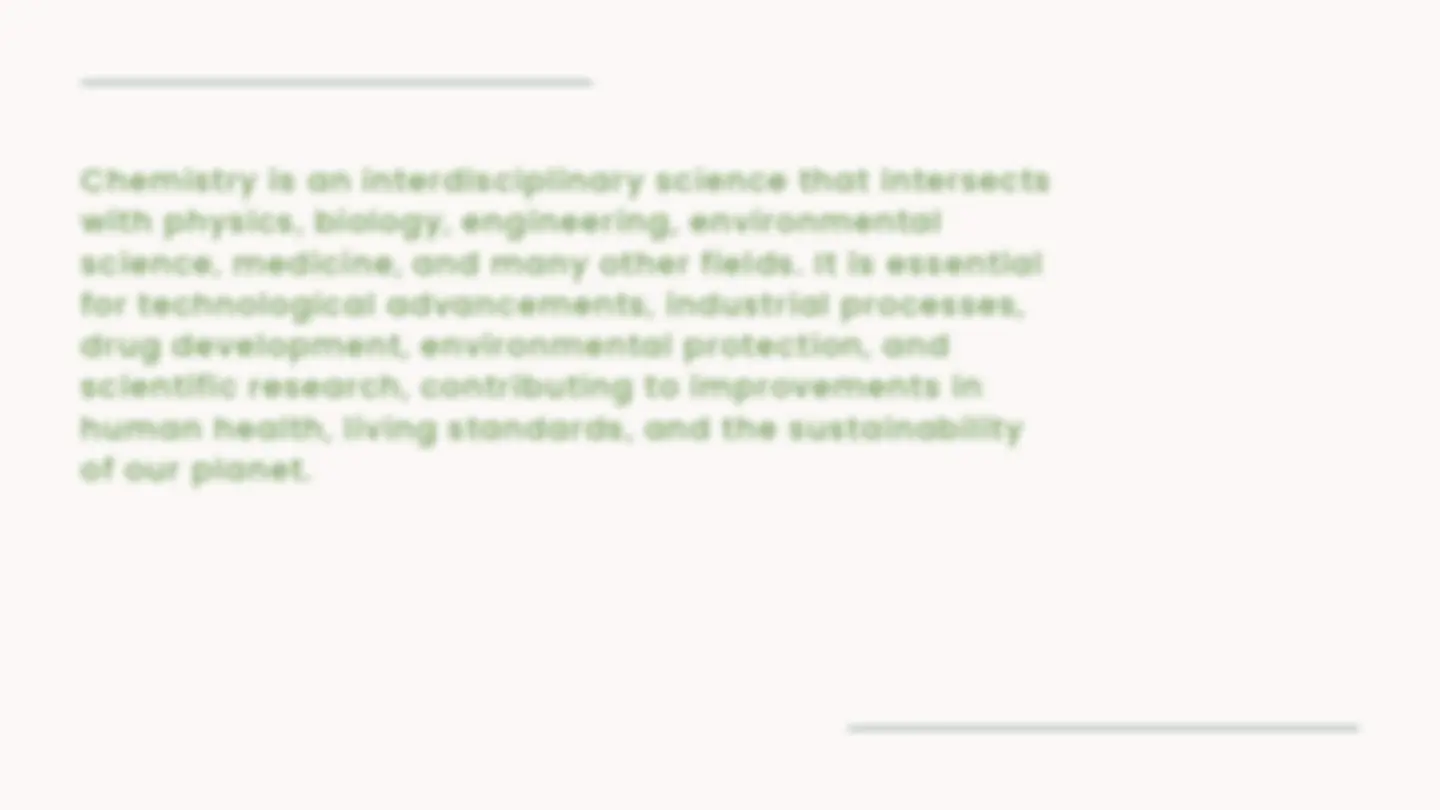



Study with the several resources on Docsity

Earn points by helping other students or get them with a premium plan


Prepare for your exams
Study with the several resources on Docsity

Earn points to download
Earn points by helping other students or get them with a premium plan
Community
Ask the community for help and clear up your study doubts
Discover the best universities in your country according to Docsity users
Free resources
Download our free guides on studying techniques, anxiety management strategies, and thesis advice from Docsity tutors
This presentation provides an overview of chemistry, the study of the properties, composition, and behavior of matter.
Typology: Slides
1 / 22

This page cannot be seen from the preview
Don't miss anything!















Presented by: Abigail Atiwag
Chemistry is the branch of science that deals with the composition, structure, properties, and reactions of matter. It is a fundamental science that plays a crucial role in understanding the natural world, developing new materials and technologies, and addressing global challenges in areas such as energy, health, and the environment. Here are key topics in chemistry:
Chemical bonding : Ionic bonding, covalent bonding, metallic bonding, Lewis structures, molecular geometry, bond polarity, and intermolecular forces (van der Waals forces, hydrogen bonding).
Stoichiometry : Chemical equations, balancing equations, mole concept, stoichiometric calculations, limiting reactants, and percent yield.
Kinetics : Reaction rates, rate laws, activation energy, reaction mechanisms, catalysis, enzyme kinetics, and factors affecting reaction rates (temperature, concentration, catalysts).
Quantum chemistry : Quantum mechanics, atomic orbitals, quantum numbers, wave-particle duality, Schrödinger equation, molecular orbitals, electronic structure, and spectroscopic techniques.
Reaction mechanisms : Organic reactions (substitution, addition, elimination, oxidation, reduction), reaction intermediates, reaction pathways, stereochemistry, and organic synthesis.
Biochemistry : Biomolecules (proteins, carbohydrates, lipids, nucleic acids), enzymes, metabolic pathways (glycolysis, Krebs cycle, photosynthesis), bioenergetics, and biochemical techniques (chromatography, electrophoresis, PCR).
Quantitative analysis : Gravimetric analysis, volumetric analysis (titrations), calibration curves, standard solutions, analytical methods validation, and quality control in analytical chemistry.
E nvironmental pollutants : Air pollutants (CO2, NOx, SOx, VOCs), water pollutants (heavy metals, pesticides, nutrients), soil contaminants, greenhouse gases, ozone depletion, and pollution monitoring.
Materials synthesis : Polymers, ceramics, metals, nanomaterials, composite materials, semiconductors, superconductors, and materials fabrication techniques.
Materials properties : Mechanical properties, thermal properties, electrical properties, optical properties, magnetic properties, and materials characterization methods.